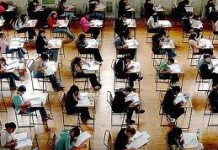David Trend
“It’s Time to Cancel the Word Rigor,” read a recent headline in the respected Chronicle of Higher Education.[1] The article detailed growing concerns about hidden bias within what many see as conventional teaching practices. Here, “rigor” was taken to task for throwing roadblocks up for some students more than others, even as its exact meaning remains vague. Webster’s Dictionary defines rigor as “severity, strictness or austerity,” which educators often translate into difficult courses and large amounts of work, rationalized in the interest of excellence and high standards.[2]
While there is nothing wrong with challenging coursework, per se, this interpretation of rigor often becomes a recipe for failure for otherwise intelligent and hardworking students. Such failures can result when rigor is used to incentivize or stratify students, as in gateway or “weed out” courses with prescribed grading targets, or situations where faculty overuse tests as motivation. Rigor discussions I have witnessed rarely consider instructional quality, teaching effectiveness, or principles of learning. Instead faculty complain about poor student attention, comprehension, or commitment. As the Chronicle explains, “all credit or blame falls on individual students, when often it is the academic system that creates the constructs, and it’s the system we should be questioning when it erects barriers for students to surmount or make them feel that they don’t belong.”[3] Continue reading “The Problem with Rigor”
Such failures can result when rigor is used to incentivize or stratify students, as in gateway or “weed out” courses with prescribed grading targets, or situations where faculty overuse tests as motivation. Rigor discussions I have witnessed rarely consider instructional quality, teaching effectiveness, or principles of learning. Instead faculty complain about poor student attention, comprehension, or commitment. As the Chronicle explains, “all credit or blame falls on individual students, when often it is the academic system that creates the constructs, and it’s the system we should be questioning when it erects barriers for students to surmount or make them feel that they don’t belong.”[3] Continue reading “The Problem with Rigor”


